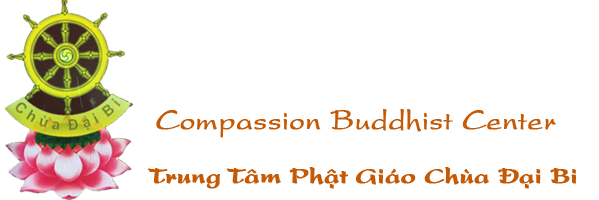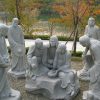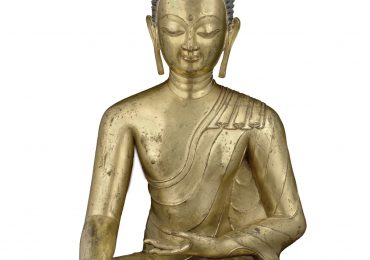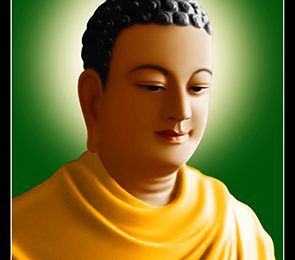BE RESPONSIBLE, OPEN-MINDED AND WISE.
Don’t live like a fish in Egypt, a frog in a well, or an emu or ostrich with its head in the sand.
1) “Don’t be like a fish in Egypt, and live in denial (the Nile river). LOL.”
This quote, or joke with meaning, “Don’t be like a fish in Egypt, and live in denial (the Nile River)”, was something that just popped out of my mouth while teaching a Dharma class a few years ago at a monthly half-day Buddhist youth retreat.
The classes were simply entitled ‘Q&A’ and we would give each class a name that related to the subject matter at the end of the class. The subject matter was determined by the questions asked by the students.
I initiated this little quirk to help enable the students to commit the teachings to memory and to have a laugh too. Some examples of the class names are: ‘Fish in Egypt’, – To be responsible in our lives and not live in denial; ‘Stuff’ – Discussing everyday suffering and it’s causes; ‘Extra Stuff’ – Related to freeing the mind from worry, anxiety and the like; ‘Blah Blah Blah’ – Discussing Right Speech. Just to name a few.
Anyway, the class mentioned above took place around the time of the end of year exams. The age group of the students was probably between 13-23 years old, so the students were either attending high school or university.
As mentioned, the basic subject matter was to ‘Be responsible and not to turn our back on our responsibilities as students’. To listen, study, learn and commit to memory what we have learned. To have respect and appreciation for the efforts and knowledge of our parents and teachers, as well as maintaining a positive attitude.
Also discussed was the need to always practise the Dharma and how helpful doing so would be leading up to and during the examination process.
I’m sorry that this quote, or joke with meaning, does not make sense if translated directly to other languages other than English, due to it being a play on words. Hopefully this brief explanation is helpful, clear and easy to understand for everyone, and for translation into other languages.
2) “Don’t be like a frog in a well, thinking that the well is the whole universe and that outside of the well does not exist.”
To live a contented life we must develop and maintain an open mind, for if we are open-minded we will experience life with more clarity and understanding. We will allow ourselves the opportunity to be happier, and be able to deal with life’s changes and difficulties more calmly, as well as being able to find solutions to our problems with less worry and anxiety.
When our mind is not open, we cut ourselves off from experiencing life to the fullest. It is not beneficial to keep a closed mind, thinking that our way is the only way, that this is just the way we are. The more our mind is closed, the more likely we are to drag ourselves and others around us down, and the less likely we are to experience contentment and peace, and to develop true compassion and understanding.
So do your best to develop and maintain an open mind, and avoid being closed-minded and living like a frog in a well.
3) “Don’t live like an emu or an ostrich, and just put your head in the sand and think no one can see you. Be responsible.”
When an emu or an ostrich does not want to be seen, they naively bury their head in the sand, thinking that their whole body is hidden from all that surrounds them. Just because they can’t see anything, they think that nothing can see them.
Similarly, many people act in this way. Thinking that their unwholesome actions of mind, body and speech go unnoticed by those around them. They live their lives trying to gain respect from others, but unfortunately think, act and speak contrary to their wish to be respected.
They have no understanding of the universal law of karma, not realising that for every unwholesome thought, action and word that they engage in, they will experience a similar unwholesome and undesirable effect.
So we should do our very best to only engage in wholesome thoughts, actions and words, and encourage and persuade others to do likewise.
Be honest to ourselves and not put our head in the sand. Believe in ourselves and our potential to live virtuously.
By Dharma Teacher Andrew Williams
Melbourne February 2017









